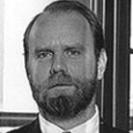
Richard Charles Mulligan, Ph.D
Richard C. Mulligan is the Mallinckrodt Professor of Genetics at Harvard Medical School, and Director of the Harvard Gene Therapy Initiative, an integrated effort amongst basic science and clinical investigators at Harvard University and its Affiliated Hospitals directed towards the pre-clinical and clinical evaluation of novel gene-based therapies for inherited and acquired diseases. Professor Mulligan received his B.S. degree from Massachusetts Institute of Technology, and his Ph.D. from the Department of Biochemistry at Stanford University School of Medicine, where he studied under Professor Paul Berg. After receiving postdoctoral training at the Center for Cancer Research at MIT with Professors David Baltimore and Phillip Sharp, Professor Mulligan joined the MIT faculty and subsequently was appointed Professor of Molecular Biology and Member of the Whitehead Institute for Biomedical Research before moving to Children's Hospital and Harvard in 1996. His honors include the MacArthur Foundation Prize, the Rhodes Memorial Award of the American Association for Cancer Research, the ASMB-Amgen Award, and the Nagai Foundation International Prize.
Professor Mulligan is an internationally recognized pioneer in the development of new technologies for transferring genes into mammalian cells. Scientists use the specialized tools created in his laboratory to unravel basic questions about human development and to devise new therapies for the treatment of both inherited diseases and acquired diseases.
Nature
View full abstract on Pubmed
Proc Natl Acad Sci U S A
View full abstract on Pubmed
Proc Natl Acad Sci U S A
View full abstract on Pubmed
Mol Ther
View full abstract on Pubmed
J Biol Chem
View full abstract on Pubmed
Circulation
View full abstract on Pubmed
J Clin Oncol
View full abstract on Pubmed
Gene Ther
View full abstract on Pubmed
Mol Cell Biol
View full abstract on Pubmed